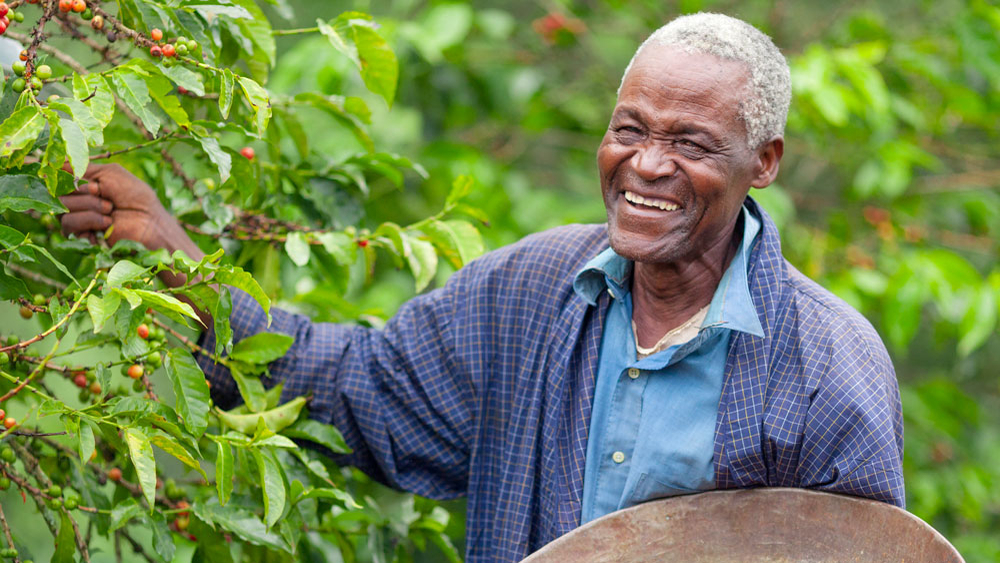
Post-COVID Economy: A call for investment in farmers

Prince Boateng
2021-07-26 12:00:00
This past year, our global economy experienced a wide-felt shock. As the world emerges to operate in a post-covid environment, firms committed to advancing their social and environmental impact will surpass profit-driven initiatives. This shift in business will take time to grow and gain traction. Currently, there are economic contractions in supply, demand, and distribution, which have raised problems and insecurities within the framework of supply chains.
Essential workers have occupied significant and mandatory roles to help societies stay healthy. This is a unique opportunity and inflection point in which the way business is conducted and thought about can pivot and find new value in green, sustainable practices. These practices not only recognize health and efforts to support the demand from consumers and citizens, but also address and make amendments to support a greener earth.
Farmers in Ghana are facing a unique problem amidst pandemic - enduring the inability to gain capital and resources to practice climate-smart agriculture. Banks and investments have normally oriented towards guaranteed returns on investments. In this perspective, monetary returns significantly outweigh environmental and social responsibility.
Shifting business practices to green initiatives are responses to customer preferences and support for responsible companies. The 5WPR’s 2020 Consumer Culture Report, estimated that millennials spent around $1.4 trillion in 2020, with 83% finding it important for the companies they buy from to align with their values. Triple bottom line, or TBL, is a framework that focuses on measuring three key drivers of performance; social, environmental, and financial. TBL approaches may seem idealistic, but new and innovative companies like AgroFides prove that it’s possible to do the right thing and make money at the same time. AgroFides provide resources to farmers for climate-smart agriculture (CSA) that sustainably increase agricultural productivity, build resilience to climate change, and reduce greenhouse gas emissions. In a changing climate, CSA helps effectively support and ensure food security.
AgroFides provides investors with a cohort of farmers practicing climate-smart agriculture, allowing them to make a meaningful social, environmental, and economic impact. A product of the digital revolution, AgroFides offers a peer-to-peer lending platform, electronic agricultural extension services, and a credit scoring algorithm that draws data on areas from agronomic surveys to crop budgets to insurance histories. When discussing the post-pandemic era, founder and executive chairperson of the World Economic Forum, Klaus Schwab, states that the collaboration between companies, universities, and other parties during COVID-19 should serve as an example. AgroFides is dedicated to fostering partnerships and has teamed up with UN Agencies, NGOs, Universities, and various FinTech and AgTech startups.
AgroFides allows not only an economic impact to be made by lenders, but a sizable social and environmental impact on their loans as well. Rural smallholder farms are dealt harsh conditions because of climate change. Many farms are largely rain fed and lack irrigation infrastructure, resulting in being climate sensitive and vulnerable to droughts and/or flooding. Additionally, climate projections predict declining/differing rainfall amounts, rising temperatures, and frequent droughts, increasing the likelihood of crop failure. As a result of this, farmers will need investment capital to combat the impact incurred by climate change. Farmers in response will use the loans to increase their resilience to the weather through smart agricultural systems, crop diversification, and flood and waste management infrastructure, among other tools.
Along with the environmental impact, lender’s investments have a significant social impact by promoting gender equality in sub-Saharan African agriculture. Female farmers face barriers to accessing loan and agricultural support services, including exclusion from cooperatives, being pushed out of planting cash crops which are more credit-eligible as opposed to subsistence crops, and lack of ownership on the farmland. Through AgroFides, lenders can help close the gender gap by lending to female farmers.